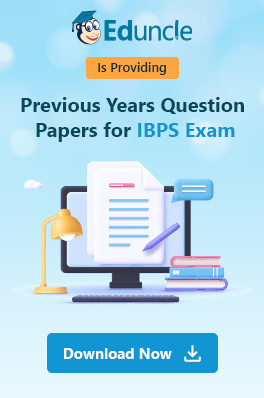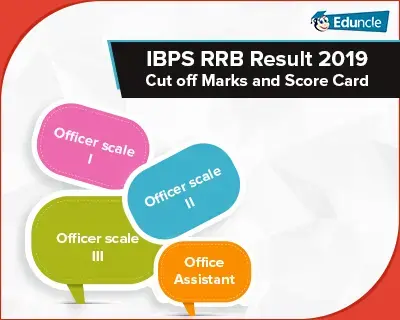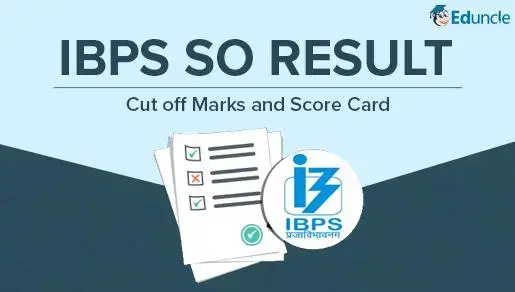Bank Interview Concept! We have already discussed the Principle of Core Banking in the first part and basic information of Bank Functions, Accounts, Cheques & Risks in part 2.
When you go to the interview round, you do not have much time to give the answers. Your brain must be prepared for quick action. It means you should know exactly what you will answer and what they can ask in a banking interview.
Eduncle hopes so, you have an idea which topics are asked in Banking Interview round which are described in part 1. Now, it’s time to focus on one of the most important topics i.e. the Reserve Bank of India (RBI). You should know everything about the RBI before appearing the Banking interview to avoid rejection.
After the resignation of RBI Governor Dr Urjit Patel, it has become even more important to keep an eye on latest happening in the RBI world. Now, Shaktikanta Das has joined RBI as 25th RBI Governor.
There are many questions asked in bank Interview regarding RBI such as: -
When RBI was established?
When Was RBI Nationalized?
What does RBI do?
What are the policy rate and reserve ratio of RBI?
Let’s dive right in!
History About RBI (Reserve Bank of India)
 Many candidates don’t know about the difficulty level of Banking Interview. They only prepare the current GK and superficial banking details. Most of the candidates miss some very important points such as the central bank of India and its history. According to the Bank aspirants who shared their interview experiences, some questions are asked from RBI’s History. So, before appearing in Banking Interview Exam, you must know the brief introduction of Reserve Bank of India.
Many candidates don’t know about the difficulty level of Banking Interview. They only prepare the current GK and superficial banking details. Most of the candidates miss some very important points such as the central bank of India and its history. According to the Bank aspirants who shared their interview experiences, some questions are asked from RBI’s History. So, before appearing in Banking Interview Exam, you must know the brief introduction of Reserve Bank of India.
Reserve Bank of India is the central bank of India which manages the financial stability and economy of India.
It was established on 1st April 1935 in accordance with the Reserve Bank of India Act 1934.
At first, the head office of RBI was in Calcutta which was permanently moved in 1937 to Mumbai.
RBI was nationalised in 1st January 1949 after India’s Independence.
It is the first bank of India which is fully owned by the Government of India.
The Preamble of Reserve Bank of India
The preamble of RBI describe exactly “To regulate the issue of Bank notes and keeping of reserves with a view to securing monetary stability in India and generally to operate the currency and credit system of the country to its advantage, to have a modern monetary policy framework to meet the challenge of an increasingly complex economy, to maintain price stability while keeping in mind the objective of growth.”
Functions of RBI - What is the Role of RBI?
RBI plays an important role in the banking sector. Here we have mentioned some important functions of RBI. If you want to know in detail then download the PDF – Functions of RBI
Evolution of Central Banking & Reserve Bank of India
Evolution of Central Banking
Legal Framework for Reserve Bank functions
Price Stability
Monetary Policy Framework
Market Operations
Financial Stability
Regulation of the Financial System
Regulation of Commercial Banks
Supervision of Commercial Banks
Regulation & Supervision of Co-operative Banks
Regulation & Supervision of Non-Banking Financial Companies
Development and Regulation of Financial Markets
Regulation of Financial Market Infrastructure
Download IBPS Answer Keys - Free PDF
Currency and Banking Functions
Currency Management
Banker to Banks
Banker to Government
Public Debt Management
Understanding Reserve Bank's Balance Sheet
Foreign Exchange – Management & Reserves
Foreign Exchange Management
Foreign Exchange Reserve Management
Developmental Functions
Consumer Education and Protection
Financial Inclusion and Development
Development of Institutions
Organizational Structure of RBI
RBI has a central board of directors. It is the main governing body of RBI. It consists of: -
One governor which is appointed by the government of India.
Four deputy governor comes under the governor.
One is the chairperson of public sector bank.
Second is the chairperson of RBI
Third is economists.
Last is a banker of repute.
It has four more directors representing the regional boards at Mumbai, Chennai, Kolkata, and Delhi.
One representative from the finance ministry. It has 10 government-nominated directors representing various fields of economy.
Thus, there are twenty persons in the central board. The organisational structure of the Reserve Bank of India is as under:

Know More About RBI Organisational Structure
Governors of Reserve Bank of India
Since the establishment of RBI, 25 governors have been appointed by the government of India. Indian currency is issued after the signature of the RBI Governor. The first RBI governor was Sir Osborne A. Smith from 1st April 1935 to 30th June 1937. We have mentioned the last five RBI Governor name in the table below: -
| S.No. | Name (Term of Office) | Photos |
| 1. | Bimal Jalan (22nd Nov 1997 - 6th Sep 2003) | 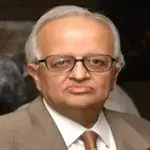 |
| 2. | Y. V. Reddy (6th Sep 2003 - 5th Sep 2008) |  |
| 3. | D. Subbarao (5th Sep 2008 - 4th Sep 2013) |  |
| 4. | Raghuram Rajan (4th Sep 2013 - 4th Sep 2016) | 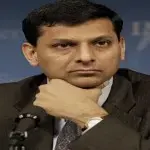 |
| 5. | Urjit Patel (4th Sep 2016 - 10th Dec 2018) | 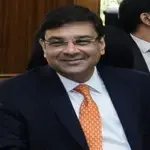 |
| 6. | Shaktikanta Das (11th Dec 2018 - Incumbent) | 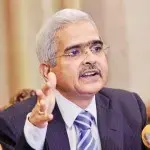 |
Download Free IBPS Study Plan & Boost your Learning
Policy Rates and Reserve Ratios of RBI to Control Inflation and Liquidity
RBI has decided many Policy Rates and Reserve Ratios to control the inflation and liquidity in the economy. There are 5 Policy Rates and 2 Reserve Ratios are as follows: -
Reserve Ratios
Cash Reserve Ratio
Statutory Liquidity Ratio
Policy Rates
Repo Rate
Reverse Repo Rate
Bank Rate
Marginal Standing Funding
Open Market Operations
Know More About RBI Policy Rates and Reserve Ratios
Other Questions Asked About RBI in Banking Interview
There are many other questions asked in Banking interview regarding RBI and its role and responsibilities. You must know about these questions to avoid rejection in banking interview.
RBI as Banker to Government
What is RBI's role with regard to the conduct of Government's banking transaction?
How does the Reserve Bank of India discharge its statutory obligation of being 'Banker to Government'?
How payment into government account is made?
When is the receipted challan for payment made into government account made available?
What if the Receipted Challan is misplaced?
Are agency banks compensated for the conduct of Central/State Government banking?
What is RBI’s role in Goods and Service Tax regime?
How the Non-Tax receipts of government effected digitally?
The official website of RBI provided the answers of all the above questions. You can check and learn from RBI as Banker to Government.
Reserve Bank’s Instructions on Banking matters
RBI issue many instructions for deposit accounts, loans, interest rate and other banking-related matters. Many candidates are rejected in the interview round because they don’t know about these Instructions which are used in banking matters.
Whether banks can accept interest-free deposits?
What rate of Interest is paid by banks on savings bank accounts?
How is the computation of interest on savings bank deposits done by banks?
How banks can pay interest on term deposits repayable in less than three months or where the terminal quarter is incomplete?
Whether banks can pay differential rates of interest on term deposits aggregating Rs.15 lakh and above?
Whether banks are permitted to offer a differential rate of interest on NRE deposits?
Whether the concessional rate of interest is applicable when a loan against FCNR(B) deposit is repaid in foreign currency?
Whether banks can accept recurring deposits under the FCNR(B) Scheme?
Whether banks are permitted to offer a differential rate of interest on FCNR(B) deposits?
Whether FCNR(B) deposits can be renewed with retrospective effect (i.e. from the maturity date)? If yes, what is the rate of interest payable?
Answer of all the above questions – Reserve Bank’s Instructions on Banking matters
We hope, now have an idea about Banking Interview questions regarding RBI. However, if you have any doubt regarding this page, you can ask our experts through the comment box. We will definitely try to solve your queries as soon as possible.
If you found this article helpful, then share with candidates who are preparing for IBPS Interview.
In the next part, we have described the financial system of the bank. So, stay connected with Eduncle to avoid rejection in banking interview.
Click Here to Read Part 2 Click Here to Read Part 4



